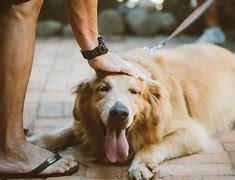
Okay, here’s a draft for your article intro:
Why is my dog acting weird all of a sudden?
We all know that dogs are like family, and they’re often called man’s best friend, right? They bring us so much joy, unconditional love, and companionship. But, just like us humans, dogs can experience changes in their behavior from time to time. Seeing a sudden shift in your furry friend’s behavior can be alarming, leaving you wondering, “Why is my dog acting weird all of a sudden?”
There could be a multitude of reasons behind this sudden change in demeanor. Maybe your pup is experiencing some discomfort or even a bit of stress, or something more serious is happening.
Before you jump to conclusions and start panicking, it’s important to remember that understanding why your dog is acting out of sorts is the first step towards figuring out how to help.
Related Post : when will the safe banking act be voted on
In this article, we’re going to take a closer look at some of the most common reasons behind sudden changes in dog behavior. We’ll cover things like:
- Possible physical causes: illness or pain.
- Common psychological factors: stress & anxiety.
- Potential environmental triggers.
- Behavioral issues, which might need professional help.
- Understanding your dog’s individual personality.& how this can affect behavior.
This will give you a solid understanding of what could be happening and hopefully point you in the right direction, allowing you to either address the issue on your own or when it’s best to contact your veterinarian.
Let’s dive in and find out what’s causing your dog’s sudden shift in behavior. Keep in mind that while the information here is meant to be helpful, it shouldn’t replace the advice of a qualified veterinarian. If you have any concerns, it’s always best to seek professional help for your furry friend.
Why Is My Dog Acting Weird All of a Sudden?
Dogs are creatures of habit, and any sudden changes in their behavior can be alarming. While a little extra enthusiasm or a playful nip might be just a passing stage, persistent stscope behavior can indicate something more serious. Understanding why your dog might be acting weird is crucial for providing the care they need and ensuring their well-being.
Understanding Sudden Changes in Dog Behavior
Dogs communicate through their body language and behavior. A sudden change in these patterns can signal distress, discomfort, or even illness. Recognizing these changes early can help you address the issue before it escalates.
What is considered stscope dog behavior?
“Stscope behavior” can be subjective, but it generally refers to behaviors that are unusual for your dog. Examples might include:
- boostd barking or howling
- Excessive pacing or restlessness
- Loss of appetite or changes in eating habits
- Excessive sleeping or lethargy
- Aggression towards people or other animals
- House soiling or accidents
- Hiding or withdrawing from interaction
- Licking or chewing excessively
- Seizure-like activity
What are some common reasons for sudden changes in dog behavior?
Sudden changes in dog behavior can be caused by a variety of factors, including medical issues, environmental changes, and behavioral issues.
How to track changes in your dog's behavior.
Keep a log of your dog’s behavior including:
- Date and time of the behavior
- Description of the behavior
- Anything else that was happening at the time
- Your dog’s overall mood and energy level
This will help you determine patterns and determine potential causes.
Common Causes for Sudden Changes in Dog Behavior
Medical Issues
Pain: A sudden change in behavior could be a sign that your dog is in pain. Observe your dog closely for any limping, stiffness, or reluctance to move.
Illness: Dogs, just like humans, can get sick. Illness can manifest as stscope behavior such as lethargy, vomiting, diarrhea, or loss of appetite.
Injury: If your dog has been injured, they may exhibit signs of pain, limping, or reluctance to move. Observe for any signs of swelling or bleeding.
Age-Related Changes: As dogs age, they may experience cognitive decline, which can lead to changes in behavior. This may include disorientation, forgetfulness, or inappropriate elimination.
Environmental Changes
New Pet: The introduction of a new pet can cause stress and anxiety for your dog. They may become jealous or possessive of their belongings or attention.
New People: New people in your home, especially if they are unfamiliar, can be stressful for dogs. They may exhibit barking, growling, or avoidance behaviors.
New Home: Moving to a new home can be disruptive for dogs. They may experience stress, anxiety, and fear.
Changes in Routine: Any changes to your dog’s routine, such as changes in feeding times, walks, or bedtime, can lead to stress and stscope behavior.
Behavioral Issues
Anxiety: Anxiety can manifest in a variety of ways, including:
- Separation anxiety: Dogs with separation anxiety may exhibit destructive behavior, excessive barking, or howling when left alone.
- Generalized anxiety: Dogs with generalized anxiety may be fearful and withdrawn.
- Fear of specific things: Dogs may be afraid of loud noises, stscopers, or other things.
Stress: Stress can be caused by a variety of factors, including changes in family dynamics, changes in routine, and over-stimulation.
Changes in family dynamics: Conflict in the home, such as arguments or divorce, can cause stress for dogs.
Changes in routine: Changes in the home, such as a new baby or a change in work schedule, can lead to stress for dogs.
Over-stimulation: Too much stimulation, such as loud noises or excessive interaction, can overwhelm dogs and lead to anxiety or aggression.
When to Consult a Veterinarian or Behaviorist
When to see a veterinarian for sudden changes in dog behavior:
- If your dog is exhibiting any of the following symptoms, it is crucial to see a veterinarian immediately:
- Lethargy or weakness
- Loss of appetite
- Vomiting or diarrhea
- Difficulty breathing
- Seizure-like activity
When to see a certified dog behaviorist:
- If your dog’s behavior is persistent and you are unable to manage it on your own, a certified dog behaviorist can offer professional guidance.
Tips for Managing Sudden Changes in Dog Behavior
Patience and Consistency:
- Be patient with your dog. It may take time for them to adjust to changes in their environment or routine.
- Be consistent with your training and rules. This will help your dog feel secure and know what to expect.
Positive Reinforcement:
- Use positive reinforcement techniques, such as treats, praise, and playtime, to reward good behavior.
- Avoid punishment, as this can make your dog’s anxiety worse.
Professional Help:
- If you are struggling to manage your dog’s behavior, consult a certified dog behaviorist.
Conclusion
Sudden changes in dog behavior can be concerning, but by understanding the potential causes and seeking professional help when needed, you can ensure your dog’s health and well-being. Remember to be patient, consistent, and observant, and you can help your dog through any behavioral challenges they may face.

Leave a Reply